Knighthood Quotes
Quotes tagged as "knighthood"
Showing 1-23 of 23
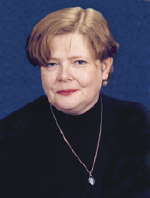
“When people say a knight's job is all glory, I laugh and laugh and laugh. Often I can stop laughing before they edge away and talk about soothing drinks.”
― Squire
― Squire

“Desire is an odd thing. As soon as it’s sated, it transmutes. If we receive golden thread, we desire the golden needle.”
― The Cruel Prince
― The Cruel Prince

“What if custom is wrong? demanded the part of her that believed in the code of chivalry. A knight must set things right.”
― First Test
― First Test
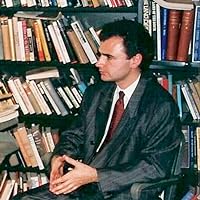
“Knighthood lies above eternity; it doesn’t live off fame, but rather deeds.”
― The Sun Watches the Sun
― The Sun Watches the Sun

“Why?” he asked Pate. “What am I to them?”
“A knight who remembered his vows,” the smith said.”
― The Hedge Knight
“A knight who remembered his vows,” the smith said.”
― The Hedge Knight

“In medieval times, contrary to popular belief, most knights were bandits, mercenaries, lawless brigands, skinners, highwaymen, and thieves. The supposed chivalry of Charlemagne and Roland had as much to do with the majority of medieval knights as the historical Jesus with the temporal riches and hypocrisy of the Catholic Church, or any church for that matter. Generally accompanied by their immoral entourage or servants, priests, and whores, they went from tourney to tourney like a touring rock and roll band, sports team, or gang of South Sea pirates. Court to court, skirmish to skirmish, rape to rape. Fighting as the noble's substitution for work.”
― All Shall Be Well; And All Shall Be Well; And All Manner of Things Shall Be Well
― All Shall Be Well; And All Shall Be Well; And All Manner of Things Shall Be Well
“Such is the lot of the knight that even though my patrimony were ample and adequate for my support, nevertheless here are the disturbances which give me no quiet. We live in fields, forests, and fortresses. Those by whose labors we exist are poverty-stricken peasants, to whom we lease our fields, vineyards, pastures, and woods. The return is exceedingly sparse in proportion to the labor expended. Nevertheless the utmost effort is put forth that it may be bountiful and plentiful, for we must be diligent stewards. I must attach myself to some prince in the hope of protection. Otherwise every one will look upon me as fair plunder. But even if I do make such an attachment hope is beclouded by danger and daily anxiety. If I go away from home I am in peril lest I fall in with those who are at war or feud with my overlord, no matter who he is, and for that reason fall upon me and carry me away. If fortune is adverse, the half of my estates will be forfeit as ransom. Where I looked for protection I was ensnared. We cannot go unarmed beyond to yokes of land. On that account, we must have a large equipage of horses, arms, and followers, and all at great expense. We cannot visit a neighboring village or go hunting or fishing save in iron.
Then there are frequently quarrels between our retainers and others, and scarcely a day passes but some squabble is referred to us which we must compose as discreetly as possible, for if I push my claim to uncompromisingly war arises, but if I am too yielding I am immediately the subject of extortion. One concession unlooses a clamor of demands. And among whom does all this take place? Not among strangers, my friend, but among neighbors, relatives, and those of the same household, even brothers.
These are our rural delights, our peace and tranquility. The castle, whether on plain or mountain, must be not fair but firm, surrounded by moat and wall, narrow within, crowded with stalls for the cattle, and arsenals for guns, pitch, and powder. Then there are dogs and their dung, a sweet savor I assure you. The horsemen come and go, among them robbers, thieves, and bandits. Our doors are open to practically all comers, either because we do not know who they are or do not make too diligent inquiry. One hears the bleating of sheep, the lowing of cattle, the barking of dogs, the shouts of men working in the fields, the squeaks or barrows and wagons, yes, and even the howling of wolves from nearby woods.
The day is full of thought for the morrow, constant disturbance, continual storms. The fields must be ploughed and spaded, the vines tended, trees planted, meadows irrigated. There is harrowing, sowing, fertilizing, reaping, threshing: harvest and vintage. If the harvest fails in any year, then follow dire poverty, unrest, and turbulence.”
― Ulrich von Hutten and the German Reformation
Then there are frequently quarrels between our retainers and others, and scarcely a day passes but some squabble is referred to us which we must compose as discreetly as possible, for if I push my claim to uncompromisingly war arises, but if I am too yielding I am immediately the subject of extortion. One concession unlooses a clamor of demands. And among whom does all this take place? Not among strangers, my friend, but among neighbors, relatives, and those of the same household, even brothers.
These are our rural delights, our peace and tranquility. The castle, whether on plain or mountain, must be not fair but firm, surrounded by moat and wall, narrow within, crowded with stalls for the cattle, and arsenals for guns, pitch, and powder. Then there are dogs and their dung, a sweet savor I assure you. The horsemen come and go, among them robbers, thieves, and bandits. Our doors are open to practically all comers, either because we do not know who they are or do not make too diligent inquiry. One hears the bleating of sheep, the lowing of cattle, the barking of dogs, the shouts of men working in the fields, the squeaks or barrows and wagons, yes, and even the howling of wolves from nearby woods.
The day is full of thought for the morrow, constant disturbance, continual storms. The fields must be ploughed and spaded, the vines tended, trees planted, meadows irrigated. There is harrowing, sowing, fertilizing, reaping, threshing: harvest and vintage. If the harvest fails in any year, then follow dire poverty, unrest, and turbulence.”
― Ulrich von Hutten and the German Reformation
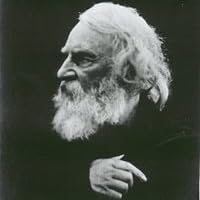
“Sadly as some old mediaeval knight
Gazed at the arms he could no longer wield,
The sword two-handed and the shining shield
Suspended in the hall, and full in sight,
While secret longings for the lost delight
Of tourney or adventure in the field
Came over him, and tears but half concealed
Trembled and fell upon his beard of white,
So I behold these books upon their shelf,
My ornaments and arms of other days;
Not wholly useless, though no longer used,
For they remind me of my other self,
Younger and stronger, and the pleasant ways
In which I walked, now clouded and confused.”
― The Complete Poems of Henry Wadsworth Longfellow
Gazed at the arms he could no longer wield,
The sword two-handed and the shining shield
Suspended in the hall, and full in sight,
While secret longings for the lost delight
Of tourney or adventure in the field
Came over him, and tears but half concealed
Trembled and fell upon his beard of white,
So I behold these books upon their shelf,
My ornaments and arms of other days;
Not wholly useless, though no longer used,
For they remind me of my other self,
Younger and stronger, and the pleasant ways
In which I walked, now clouded and confused.”
― The Complete Poems of Henry Wadsworth Longfellow
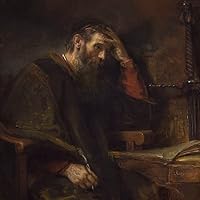
“Thou therefore, my son, be strong in the grace that is in Christ Jesus. And the things that thou hast heard of me among many witnesses, the same commit thou to faithful men, who shall be able to teach others also. Thou therefore endure hardness, as a good Knight of Jesus Christ. No man holding knighthood to God, wrappeth himself with worldly needs, that he please to him, to whom he hath proved himself. For he that fighteth in battle, shall not be crowned, but he fight lawfully.”
― 2 Timothy KJV: King James Version
― 2 Timothy KJV: King James Version
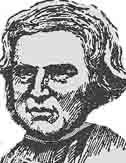
“[G]enerosity... is the mistress and queen that gives lustre to every virtue, as it is not hard to prove. Where could one find a man, however powerful and rich, who isn't blamed if he is mean? And who, though not appreciated for his many other qualities, doesn't earn praise by his generosity? Liberality on its own makes a worthy man; and that can't be achieved by high birth, courtliness, wisdom, nobility, wealth, strength, chivalry, boldness, authority, beauty, or anything else. But just as the rose is more lovely than any other flower when it opens fresh and new, so where liberality appears it surpasses all other virtues and increases five hundred times the qualities it finds in a worthy, upright man.”
―
―
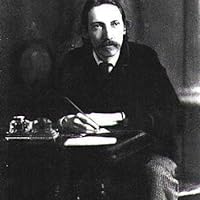
“Sir knight,’ observed the messenger, with bitterness, ‘while that ye are here, roaring for five hundred pounds, the realm of England is elsewhere being lost and won.”
― The Black Arrow
― The Black Arrow
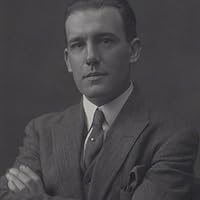
“A true anecdote which illustrates his unworldly nature is of the instruction he received in 1922 to appear at Buckingham Palace to receive the accolade of the Order of Knighthood; Bayliss replied that as the date coincided with that of a meeting of the Physiological Society, he would be unable to attend.”
― Reminiscences of Bayliss and Starling
― Reminiscences of Bayliss and Starling
“Young knight learn to love God and revere women so that your honour grows. Practice knighthood and learn the Art that dignifies you, and brings you honour in wars. Wrestle well and wield lance, spear, sword and dagger manfully, whose use in others’ hands is wasted. Strike bravely and hard there!”
―
―

“This coup de main gave Morgan the means to make himself a Jamaican planter
and to secure a knighthood, respectability and the governorship of the colony. It
also, like Drake’s similar exploits a hundred years before, made a deep impression
on the public imagination and reinforced that popular image of distant lands as
places where quick fortunes were waiting for the energetic and ruthless.”
― The Rise and Fall of the British Empire
and to secure a knighthood, respectability and the governorship of the colony. It
also, like Drake’s similar exploits a hundred years before, made a deep impression
on the public imagination and reinforced that popular image of distant lands as
places where quick fortunes were waiting for the energetic and ruthless.”
― The Rise and Fall of the British Empire

“In the light of the evidence it is hard to believe that most crusaders were motivated by crude materialism. Given their knowledge and expectations and the economic climate in which they lived, the disposal of assets to invest in the fairly remote possibility of settlement in the East would have been a stupid gamble. It makes much more sense to suppose, in so far as one can generalize about them, that they were moved by an idealism which must have inspired not only them but their families. Parents, brothers and sisters, wives and children had to face a long absence and must have worried about them: in 1098 Countess Ida of Boulogne made an endowment to the abbey of St Bertin 'for the safety of her sons, Godfrey and Baldwin, who have gone to Jerusalem'.83 And they and more distant relatives — cousins, uncles and nephews - were prepared to endow them out of the patrimonial lands. I have already stressed that no one can treat the phenomenal growth of monasticism in this period without taking into account not only those who entered the communities to be professed, but also the lay men and women who were prepared to endow new religious houses with lands and rents. The same is true of the crusading movement. Behind many crusaders stood a large body of men and women who were prepared to sacrifice interest to help them go. It is hard to avoid concluding that they were fired by the opportunity presented to a relative not only of making a penitential pilgrimage to Jerusalem but also of fighting in a holy cause. For almost a century great lords, castellans and knights had been subjected to abuse by the Church. Wilting under the torrent of invective and responding to the attempts of churchmen to reform their way of life in terms they could understand, they had become perceptibly more pious. Now they were presented by a pope who knew them intimately with the chance of performing a meritorious act which exactly fitted their upbringing and devotional needs and they seized it eagerly.
But they responded, of course, in their own way. They were not theologians and were bound to react in ways consonant with their own ideas of right and wrong, ideas that did not always respond to those of senior churchmen. The emphasis that Urban had put on charity - love of Christian brothers under the heel of Islam, love of Christ whose land was subject to the Muslim yoke - could not but arouse in their minds analogies with their own kin and their own lords' patrimonies, and remind them of their obligations to avenge injuries to their relatives and lords. And that put the crusade on the level of a vendetta. Their leaders, writing to Urban in September 1098, informed him that 'The Turks, who inflicted much dishonour on Our Lord Jesus Christ, have been taken and killed and we Jerusalemites have avenged the injury to the supreme God Jesus Christ.”
― The First Crusade and the Idea of Crusading
But they responded, of course, in their own way. They were not theologians and were bound to react in ways consonant with their own ideas of right and wrong, ideas that did not always respond to those of senior churchmen. The emphasis that Urban had put on charity - love of Christian brothers under the heel of Islam, love of Christ whose land was subject to the Muslim yoke - could not but arouse in their minds analogies with their own kin and their own lords' patrimonies, and remind them of their obligations to avenge injuries to their relatives and lords. And that put the crusade on the level of a vendetta. Their leaders, writing to Urban in September 1098, informed him that 'The Turks, who inflicted much dishonour on Our Lord Jesus Christ, have been taken and killed and we Jerusalemites have avenged the injury to the supreme God Jesus Christ.”
― The First Crusade and the Idea of Crusading

“It is I, indeed; and if ever true knight gave proof I am that man,’ replied the leader of the second troop; ‘for who would not rather face giants, sorcerers, or pagans, than this pinching cold?”
― The Black Arrow
― The Black Arrow

“Lances and plumes! I’m a knight! Come up and fight! Why hold back! Knights of the Right Stuff!”
― The Right Stuff
― The Right Stuff

“The man shrunk before the threat. His chest deflated at the glean of the blade in the moonlight, fearing its point might pop him.”
―
―

“Kaladin stared outward at the blue sky. 'I have to know,' he whispered.
'Know?'
'You asked why I protect Dalinar. I have to know if he really is what he seems, Syl. I have to know if one of them lives up to his reputation. That will tell me-'
'Tell you? Tell you what?'
'If honor is dead,' Kaladin whispered.
'He is,' Syl said. 'But he lives on in men. And in me.”
― Words of Radiance
'Know?'
'You asked why I protect Dalinar. I have to know if he really is what he seems, Syl. I have to know if one of them lives up to his reputation. That will tell me-'
'Tell you? Tell you what?'
'If honor is dead,' Kaladin whispered.
'He is,' Syl said. 'But he lives on in men. And in me.”
― Words of Radiance

“Laethrig is my father's first son, and Sulian is already knotted in a girl's long hair, while I- I am free, and have an itch to the soles of my feet that I shall not find easement for, here in my father's hall."
I looked at him in the clear upland light, the set of his head that matched that of the hawk on his fist, the hot red-brown eyes under the black brows; and I thought that he might be well right in that, and thought also that it would be good to have this frowning youngster among my captains.
"I can maybe find the means for easing the soles to your feet," I said. "And if there is a like itching in the palm of your sword hand, I can find you a fine way to appease that also.”
― Sword at Sunset
I looked at him in the clear upland light, the set of his head that matched that of the hawk on his fist, the hot red-brown eyes under the black brows; and I thought that he might be well right in that, and thought also that it would be good to have this frowning youngster among my captains.
"I can maybe find the means for easing the soles to your feet," I said. "And if there is a like itching in the palm of your sword hand, I can find you a fine way to appease that also.”
― Sword at Sunset
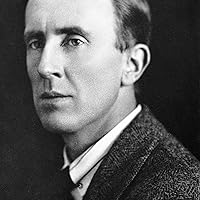
“...Our love endureth,
Though in twain we rent the Round Table's
Freedom and fellowship, fiercely striving.
Swift swords we drew Against sworn brethren,
Ere the queen was taken...”
― The Fall of Arthur
Though in twain we rent the Round Table's
Freedom and fellowship, fiercely striving.
Swift swords we drew Against sworn brethren,
Ere the queen was taken...”
― The Fall of Arthur
All Quotes
|
My Quotes
|
Add A Quote
Browse By Tag
- Love Quotes 98.5k
- Life Quotes 76.5k
- Inspirational Quotes 73.5k
- Humor Quotes 44k
- Philosophy Quotes 30k
- Inspirational Quotes Quotes 27k
- God Quotes 26.5k
- Truth Quotes 24k
- Wisdom Quotes 24k
- Romance Quotes 23.5k
- Poetry Quotes 22.5k
- Death Quotes 20k
- Life Lessons Quotes 20k
- Happiness Quotes 19k
- Quotes Quotes 18k
- Hope Quotes 18k
- Faith Quotes 18k
- Inspiration Quotes 17k
- Spirituality Quotes 15k
- Religion Quotes 15k
- Motivational Quotes 15k
- Writing Quotes 15k
- Relationships Quotes 14.5k
- Life Quotes Quotes 14.5k
- Love Quotes Quotes 14k
- Success Quotes 13.5k
- Time Quotes 12.5k
- Motivation Quotes 12.5k
- Science Quotes 11.5k
- Motivational Quotes Quotes 11.5k



